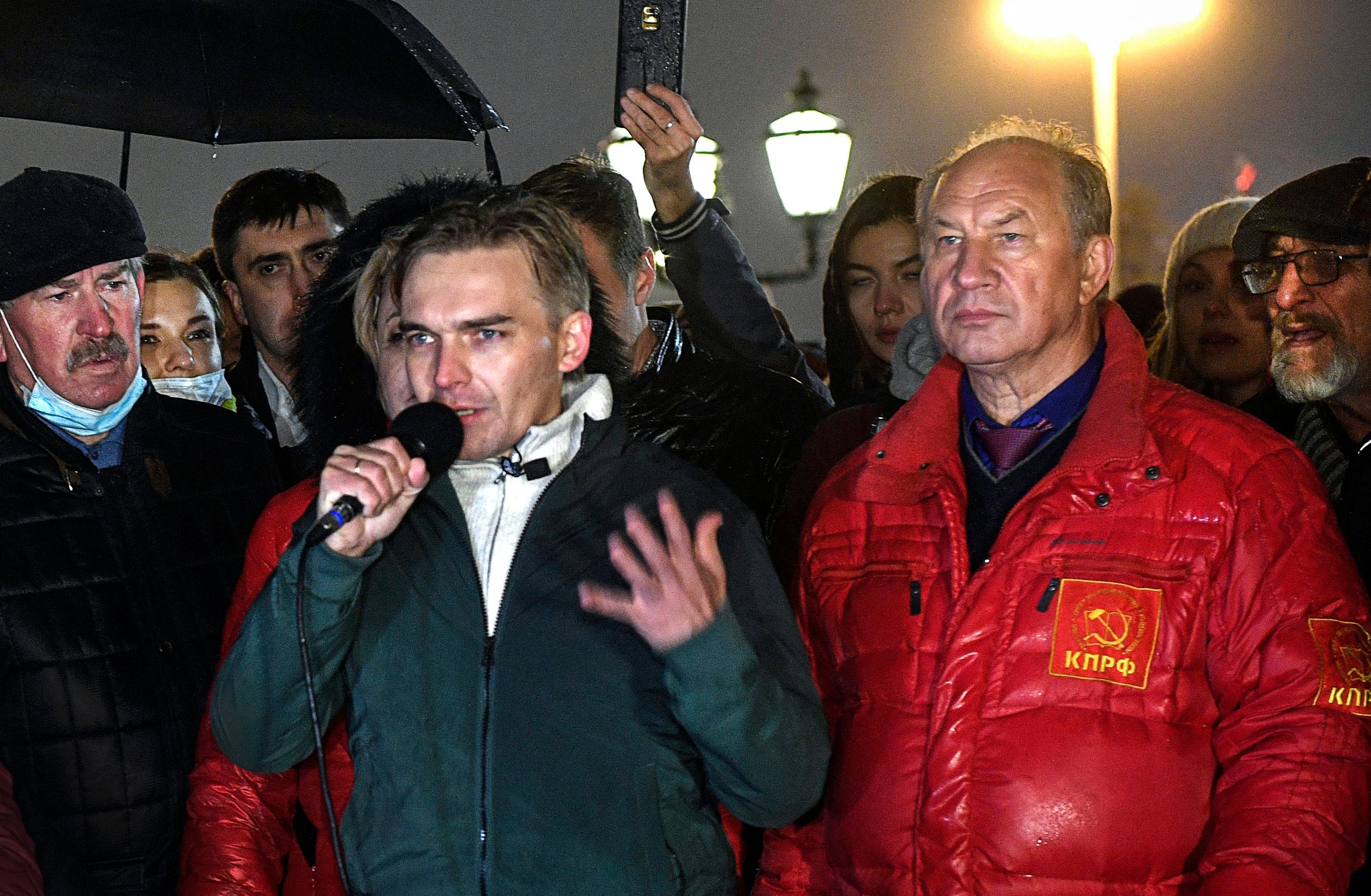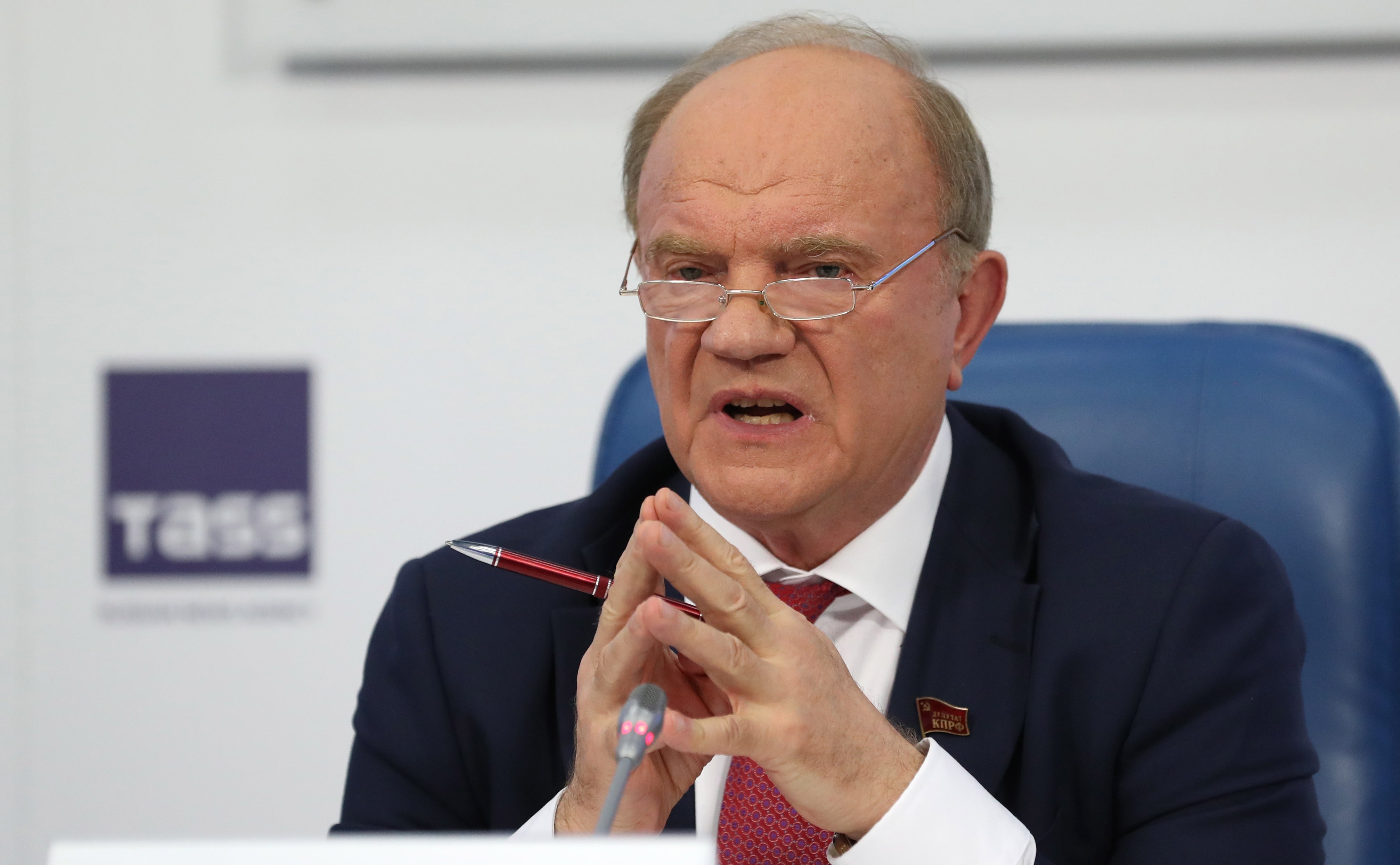Coalition of the weaklings as defeated candidates unite against disputed Russian election results
Anger over perceived election fraud is bringing together unlikely allies for an unsanctioned protest — but there are few signs the public will take part, says Oliver Carroll


Russian elections ended this week with a constitutional sweep for the ruling United Russia party, which has claimed 324 seats of the 450 parliament on an official 51.72 per cent turnout. But to describe the vote as straightforward for the Kremlin would be to miss the point.
Getting to such a position required an estimated 14 million anomalous votes – a record, say statisticians – and has united unlikely political bedfellows in outrage.
A group of independents, democrats and Communists joined forces to form what they are calling a “coalition committee” whose demands include the overturning of controversial e-voting results in Moscow and the end to the opaque system’s use in future elections.
Some of them will take to the streets in a Communist-sponsored rally in Moscow’s central square on Saturday to show their numbers.
But timidity in even naming the event – changed from a “protest” to “meeting with parliamentarians” after threats from the state – underlined the weakness of their challenge.
The cause was hardly helped by Gennady Zyuganov, 72, the Communists’ leader, apparently calling the revolution off.
“I want to ask everyone to show maximum restraint in this harsh time,” he said.
But those below are not yet ready to fall in line.
Mikhail Lobanov, 37, who ran a spirited campaign from the Communists against state TV propagandist Yevgeny Popov, said he did not see a “radical” difference in views with the leadership. But his rhetoric – “we know the victory was stolen by fraud” – appeared to offer a different story.
Mr Lobanov is one of eight independent candidates who had pulled ahead of Kremlin candidates in Moscow before the controversial results of electronic voting kicked in. He said he would be among those protesting the results on Pushkin Square.
Given the promises of arrests, it seems unlikely that Saturday’s demonstration will attract any more than a few hundred of the most dedicated. At smaller events on Monday and Thursday, journalists almost outnumbered the protesters.

Sergei Mitrokhin, 58, a veteran democratic candidate who also signed up to the coalition committee, told The Independent it was important to keep protesting even though the rewards were not immediate. “The public opinion will follow,” he said. Keeping a foot in the door was ”vital” to stand a chance of challenging fraud.
“Falsifications are of course nothing new for Russian elections,” the ex-candidate said. “But this year e-voting seems to have changed the scale of the cheating.”
The technical intricacies of Moscow’s e-voting process, which was administered by the city council’s IT department, has made criticism of it difficult. But Anastasia Bryukhanova, 32, an independent officially defeated in the opposition-leaning Leningradskaya constituency, has used statistical analysis of the data to put meat on her own fraud claims.
A breakdown of e-voting patterns over the three days of voting showed evidence, Ms Bryukhanova said, of “external interference”. The data shows a slow period of voting for United Russia at the start, followed by a fast phase, with breaks for what appears to be lunch.
“You would expect that the same proportions of people would be voting whatever the day,” she told The Independent. “But you’d see the Kremlin candidate getting artificial boosts at specific periods of the day.”

Ms Bryukhanova is trying to dispute the results in the courts – a “masochistic” endeavour, she admits, given the Kremlin’s total control of the legal system. But the process was “important” to help people understand how e-vote fraud worked.
“You can only fight when you know what it is exactly you are fighting against,” she said.
For what it’s worth, the democracy activist appeared even less convinced about the comrades she was fighting alongside. There was little she had in common with the platform of the Communist party, she said. For this reason she had no intention of joining the opposition’s “coalition committee”.
She also stopped short of endorsing Saturday’s unsanctioned protest, which described “risky” and likely to end in arrests. She predicted a small turnout.
“Successful protests are always led by society, not political declarations,” she said. “And that’s our problem. Despite the fraud, so far the people appear decidedly unmoved.”
Join our commenting forum
Join thought-provoking conversations, follow other Independent readers and see their replies
Comments
Bookmark popover
Removed from bookmarks